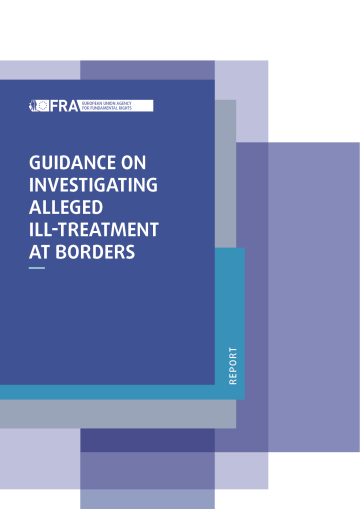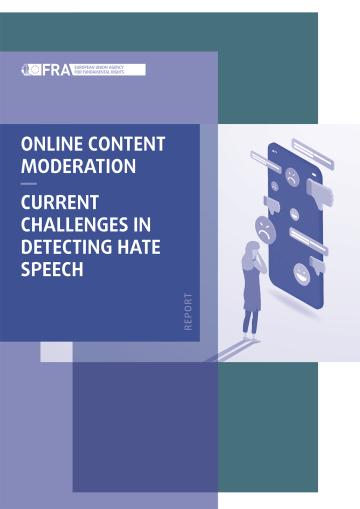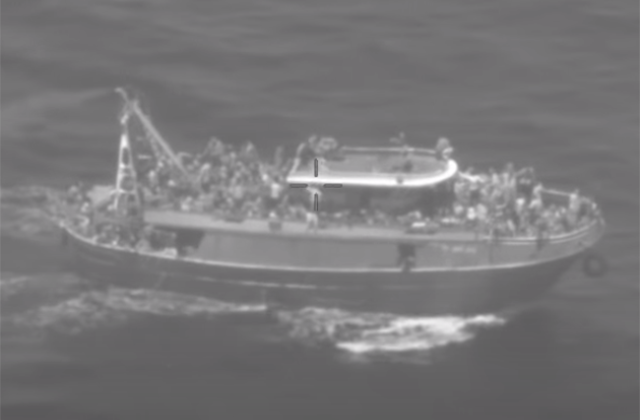52 straipsnio tikslas yra nustatyti Chartijos teisių ir principų taikymo sritį ir jų aiškinimo taisykles. Šio straipsnio 1 dalyje nagrinėjamos teisių apribojimo nuostatos. Teksto formuluotė yra pagrįsta Teisingumo Teismo teismine praktika: `... Teismo teisminėje praktikoje aiškiai įtvirtinta, kad galima nustatyti apribojimus naudotis pagrindinėmis teisėmis, ypač bendros rinkos organizavimo formos srityje, su sąlyga, kad tie apribojimai faktiškai atitinka Bendrijos siekiamus bendrų interesų tikslus ir siekiamo tikslo požiūriu nėra neproporcingu ar nepagrįstu įsikišimu, sumenkinančiu pačią tų teisių esmę` ( 2000 m. balandžio 13 d. sprendimo C-292/97 45 punktas). Nuoroda į Sąjungos pripažįstamus bendrus interesus apima tiek Europos Sąjungos sutarties 3 straipsnyje minimus tikslus, tiek ir konkrečiomis Sutarčių nuostatomis, pvz. Europos Sąjungos sutarties 4 straipsnio 1 dalimi, Sutarties dėl Europos Sąjungos veikimo 35 straipsnio 3 dalimi ir šios Sutarties 36 ir 346 straipsniais, ginamus kitus interesus.
Šio straipsnio 2 dalyje nurodoma į teises, kurios Europos bendrijos steigimo sutartyje jau buvo aiškiai garantuotos ir buvo pripažintos Chartijoje bei kurios dabar yra Sutartyse (būtent iš Sąjungos pilietybės kylančios teisės). Jame paaiškinama, kad tokioms teisėms, kurios reglamentuotos Sutartyse, taikomos Sąjungos teisei, kuria jos yra pagrįstos, taikomos sąlygos ir ribos. Chartija nekeičia EB sutartimi suteiktų teisių sistemos, kuri perimta Sutartyse.
Šio straipsnio 3 dalis skirta užtikrinti būtiną Chartijos ir EŽTK darnumą, nustatant taisyklę, kad šioje Chartijoje nustatytų teisių, atitinkančių EŽTK garantuojamas teises, esmė ir taikymo sritis, įskaitant leidžiamus apribojimus, yra tokia pati, kaip nustatyta EŽTK. Tai visų pirma reiškia, kad įstatymo leidėjas, nustatydamas šių teisių apribojimus, privalo laikytis tokių pačių standartų, kaip nustatytieji EŽTK įtvirtintose išsamiose apribojimų nuostatose, kurie tokiu būdu tampa taikytini šioje straipsnio dalyje numatytoms teisėms, nedarant neigiamos įtakos Sąjungos teisės autonomijai bei Europos Sąjungos Teisingumo Teismo autonomijai.
Nuoroda į EŽTK apima Konvenciją ir jos protokolus. Garantuojamų teisių esmę ir taikymo sritį apibrėžia ne tik tų dokumentų tekstai, tačiau ir Europos žmogaus teisių teismo ir Europos Sąjungos Teisingumo Teismo teisminė praktika. Šios straipsnio dalies paskutiniu sakiniu siekiama, kad Sąjunga galėtų garantuoti platesnę apsaugą. Bet kuriuo atveju, Chartijos suteikiamos apsaugos lygis niekada negali būti žemesnis nei EŽTK garantuojamas lygis.
Chartija neįtakoja valstybių narių galimybės pasinaudoti EŽTK 15 straipsniu, leidžiančiu nukrypti nuo įsipareigojimų EŽTK įtvirtintų teisių atžvilgiu karo ar kito nepaprasto pavojaus, dėl kurių atsiranda grėsmė tautos gyvavimui, atveju, kai valstybės imasi veiksmų nacionalinės gynybos srityje karo atveju ir veiksmų viešosios tvarkos palaikymo srityje, laikydamosi savo įsipareigojimų, pripažintų Europos Sąjungos sutarties 4 straipsnio 1 dalyje ir Sutarties dėl Europos Sąjungos veikimo 72 ir 347 straipsniuose.
Toliau pateikiamas teisių, kurios, nekliudant tolesniems pokyčiams teisėje, teisės aktuose ir Sutartyse, šiuo metu gali būti laikomos atitinkančiomis EŽTK įtvirtintas teises, kaip apibrėžta šioje pastraipoje, sąrašas. Jis neapima teisių, kurios yra papildomos EŽTK įtvirtintoms teisėms.
1. Straipsniai, kuriuose tiek esmė, tiek ir taikymo apimtis yra tokia pati kaip ir atitinkamų EŽTK straipsnių:
- 2 straipsnis atitinka EŽTK 2 straipsnį,
- 4 straipsnis atitinka EŽTK 3 straipsnį,
- 5 straipsnio 1 ir 2 dalys atitinka EŽTK 4 straipsnį,
- 6 straipsnis atitinka EŽTK 5 straipsnį,
- 7 straipsnis atitinka EŽTK 8 straipsnį,
- 10 straipsnio 1 dalis atitinka EŽTK 9 straipsnį,
- 11 straipsnis atitinka EŽTK 10 straipsnį, nepažeidžiant jokių apribojimų, kuriuos Sąjunga gali nustatyti valstybių narių teisei įvesti licencijavimo priemones, nurodytas EŽTK 10 straipsnio 1 dalies trečiame sakinyje,
- 17 straipsnis atitinka EŽTK Protokolo 1 straipsnį,
- 19 straipsnio 1 dalis atitinka Protokolo Nr. 4 4 straipsnį,
- 19 straipsnio 2 dalis atitinka EŽTK 3 straipsnį, kaip jį aiškina Europos žmogaus teisių teismas,
- 48 straipsnis atitinka EŽTK 6 straipsnio 2 ir 3 dalis,
- 49 straipsnio 1 dalis (išskyrus paskutinįjį sakinį) ir 2 dalis atitinka EŽTK 7 straipsnį.
2. Straipsniai, kurių esmė yra tokia pati kaip ir atitinkamų EŽTK straipsnių, tačiau taikymo apimtis yra platesnė:
- 9 straipsnis apima tą pačią sritį kaip ir EŽTK 12 straipsnis, bet jo taikymo sritis gali būti išplėsta kitoms santuokos formoms, jei jos yra nustatytos nacionalinės teisės aktuose,
- 12 straipsnio 1 dalis atitinka EŽTK 11 straipsnį, bet jos taikymo sritis yra išplėsta iki Europos Sąjungos lygmens,
- 14 straipsnio 1 dalis atitinka EŽTK Protokolo 2 straipsnį, bet jos taikymo sritis išplėsta, kad apimtų profesinio ir tęstinio mokymo prieinamumą,
- Tėvų teisių atžvilgiu 14 straipsnio 3 dalis atitinka EŽTK protokolo 2 straipsnį,
- 47 straipsnio 2 ir 3 dalys atitinka EŽTK 6 straipsnio 1 dalį, tačiau apribojimas, kad sprendžiamas civilinio pobūdžio teisių ir pareigų ar pareikšto baudžiamojo kaltinimo klausimas, netaikomas Sąjungos teisei ir jos įgyvendinimui,
- 50 straipsnis atitinka EŽTK Protokolo Nr. 7 4 straipsnį, bet jo taikymo sritis išplėsta iki Europos Sąjungos lygmens – tarp valstybių narių teismų,
- galiausiai Europos Sąjungos piliečiai Sąjungos teisės taikymo srityje negali būti laikomi užsieniečiais, kadangi draudžiama bet kokia diskriminacija dėl pilietybės. Todėl EŽTK 16 straipsnyje nustatyti apribojimai dėl užsieniečių teisių jiems šioje srityje netaikomi.
Šio straipsnio 4 dalyje nustatyta aiškinimo taisyklė grindžiama Europos Sąjungos sutarties 6 straipsnio 3 dalimi ir šia taisykle deramai atsižvelgiama į bendrų konstitucinių tradicijų traktavimą, kurio laikosi Teisingumo Teismas (pvz., 1979 m. gruodžio 13 d. sprendimas Hauer, 44/79, Rink. 1979, p. 3727; 1982 m. gegužės 18 d. sprendimas AM ir S, 155/79, Rink.1982, p. 1575). Pagal tą taisyklę Chartijos atitinkamos teisės turėtų būti aiškinamos tokiu būdu, kuris suteikia aukštą, adekvatų Sąjungos teisei, apsaugos lygį bei aiškinamos remiantis bendromis konstitucinėmis tradicijomis, o ne laikantis griežto `mažiausio bendravardiklio` požiūrio.
Šio straipsnio 5 dalyje paaiškinamas skirtumas tarp Chartijoje nustatytų `teisių` ir `principų`. Pagal tą skirtumą, subjektyvios teisės yra gerbiamos, o principų yra laikomasi (51 straipsnio 1 dalis). Principai gali būti įgyvendinti įstatymo galią turinčiais ar vykdomaisiais aktais (kuriuos Sąjunga priima pagal savo įgaliojimus, o valstybės narės priima tik kai jos įgyvendina Sąjungos teisę); todėl jie tampa svarbūs teismams tik kai tokie aktai yra aiškinami ar peržiūrimi. Jie nesukuria teisės Sąjungos institucijoms ar valstybių narių valdžios institucijoms teikti tiesioginius reikalavimus imti pozityvių veiksmų. Tai atitinka tiek Teisingumo Teismo praktiką (žr. ypač teisminę praktiką dėl Sutarties dėl Europos Sąjungos veikimo 191 straipsnio 2 dalyje nustatyto `atsargumo principo`: 2002 m. rugsėjo 11 d. Pirmosios instancijos teismo sprendimas Pfizer prieš Tarybą, T-13/99, kuriame pateikiama daug nuorodų į ankstesnę teisminę praktiką; ir sprendimai dėl EB sutarties 33 straipsnio dėl žemės ūkio teisės principų, pvz., Teisingumo Teismo sprendimas Van den Berg, 265/85, Rink. 1987, p. 1155: nagrinėjamas rinkos stabilizavimo ir teisėtų lūkesčių principas), tiek `principų`, ypač socialinės teisės srityje, traktavimą valstybių narių konstitucijose. Chartijoje pripažįstamų principų pavyzdžiai apima, pvz., 25, 26 ir 37 straipsnius. Kai kuriais atvejais Chartijos straipsnis gali turėti tiek teisės, tiek ir principo elementų, pvz., 23, 33 ir 34 straipsniai.
Šio straipsnio 6 dalyje nurodoma į įvairius Chartijos straipsnius, kurie vadovaujantis subsidiarumu duoda nuorodas į nacionalinius teisės aktus ir praktiką.










